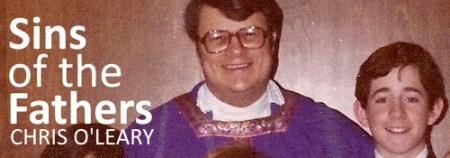
|
| ChrisOLeary.com > Sins of the Fathers > TOC > What do Survivors Deserve? |
|
The other day I came across a piece entitled Belleville Diocese responds to lawsuit alleging child sex abuse by senior priest in ’80s that contains a passage that perfectly encapsulates the problem with abuse crisis, at least in St. Louis and the surrounding region. The diocese’s spokesman, Monsignor John Myler, declined to comment on the ongoing litigation in a submitted statement. But he said the diocese has taken steps over nearly two decades “to protect children,” including yearly training for adults to recognize the behavior of offenders and to report it. “Since 2003, over 36,184 individuals in the diocese have been part of this training,” he wrote. Children also receive training to learn “skills to help protect themselves from abuse,” according to Myler. “While the Diocese of Belleville cannot respond to aspects of the specific legal case, we can state that there have been no allegations of childhood sexual abuse occurring during the past 25 years against one of our own diocesan clerics,” Myler wrote. “Cases and allegations, even recent ones, involve episodes of 30, 40, or 50 or more years ago.” That's great. But what about survivors? I didn't crop that quote conveniently. That's where the monsignor's comments ended. He didn't say anything about what the Diocese of Belleville is doing to help survivors. I assume because, like the Archdiocese of St. Louis, the Diocese of Belleville does nothing to help survivors. What do Survivors Deserve?That's a reasonable question. But it's based on an assumption. That the church is doing ANYTHING for survivors. FIEFDOMSTo understand the problem, you have to understand that the Catholic Church is composed of a number of fiefdoms that are run by bishops who...
I mention that because...
I have reported violations of VOS ESTIS by the Archdiocese of St. Louis to Rome, via multiple channels, and nobody seems to care. Assistance CoordinatorsPerhaps you've heard — because the USCCB has touted — that every (arch)diocese has in place an Assistance Coordinator. What do you think an Assistance Coordinator does? According to Sandra Price, the head of the Office of Child and Youth Protection of the Archdiocese of St. Louis, the job of their Assistance Coordinator is to put survivors in touch with psychologists if they don't already have one. And that's it. They don't pay for therapy. Or medication. Or shelter. Or recovery. Or life. If you don't believe me, Sandra Price admitted that to me during my March 26, 2019 meeting with Archbishop Robert Carlson and her, which I recorded and transcribed. Just in case. CO: I was never offered the services or told of the existence of an Assistance Coordinator. And this kinds into kind of our (Price and my) stuff. I don’t know what Hengen has told people, but… To be clear, FINDING a psychologist isn't the hardest part of getting help. Rather, the hardest part of getting help is PAYING FOR THERAPY. It's not cheap, usually running $100-125 per hour and requiring years of weekly appointments. Yes, that can get expensive, but why should survivors be expected to bear that burden? How is that just? |